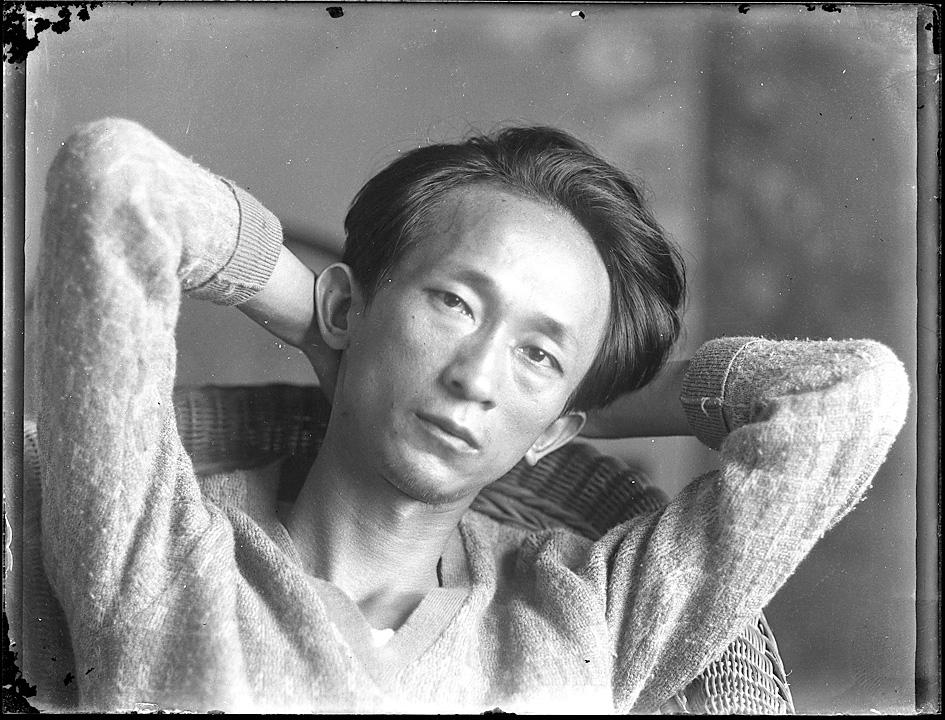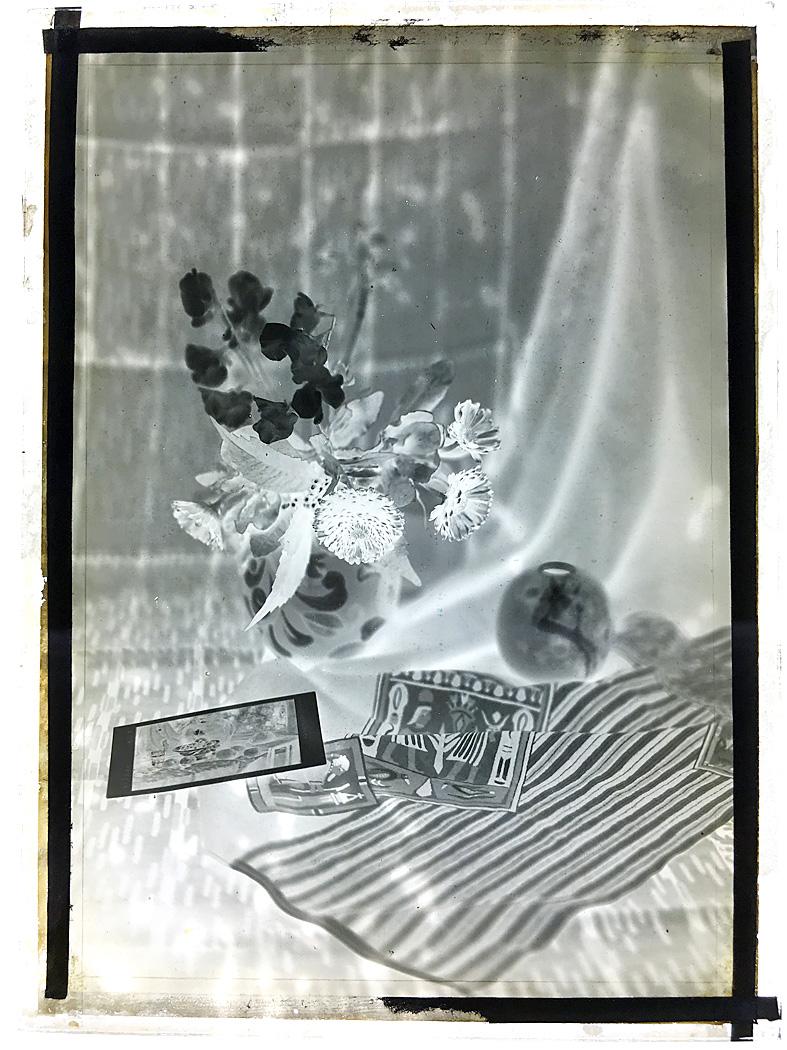To share stories about Peng Jui-lin (彭瑞麟), best known for being the first Taiwanese to hold a bachelor’s degree in photography, his granddaughter, Peng Ya-lun (彭雅倫), has established a Facebook page titled “Peng Jui-lin and our times” (彭瑞麟與我們的時代).
“I had this sudden realization that we, the living, must do something to remember our ancestors, considering the great endeavors some of them have made during their lifetime,” she said.
Peng Ya-lun was only two years old when Peng Jui-lin passed away, and she said the idea of sharing his story with the public came after the death of her mother.

Photo provided by Peng Ya-lun via CNA
Born in 1904 during the Japanese colonial period (1895-1945), Peng Jui-lin grew up in Erchongpu (二重埔), a farming village in Hsinchu County’s Jhudong Township (竹東).
After both his parents died when he was a teenager, Peng Jui-lin attended Taihoku Normal School, now National Taipei University of Education, in hopes of living a financially stable life.
During his university years, he learned watercolor painting from Kinichiro Ishikawa, a Japanese painter who promoted modern Western art education while holding several teaching positions in Taiwan from the 1910s trough the 1930s.

Photo provided by Peng Ya-lun via CNA
Having lived in Europe, Ishikawa took special interest in photography, which at the time was still a new and emerging field in Japan, and he convinced Peng Jui-lin to go abroad and study photography — instead of painting, Peng Ya-lun said.
Following his teacher’s advice, Peng Jui-lin went to Japan in 1928 to study at a Tokyo-based art school specializing in photography.
Being from a what was then a Japanese colony and being five years older than his classmates, Peng Jui-lin went to great lengths to prove himself worthy to his teachers — and to master photography, Peng Ya-lun said, recounting her father’s memories, which were retold by her mother.
In his second year, Peng Jui-lin used a three-color carbon printing technique to develop his photographs and one of them, a still life with flowers titled Silent objects (靜物), was later displayed in an exhibition by the Tokyo Photographic Research Society — an achievement that impressed teachers and classmates, she said.
Peng Jui-lin graduated top of his class, Peng Ya-lun said.
His commitment and diligence throughout his college years also impressed the school’s principal, who decided to personally teach him a new technique for developing photos, using collodion, gold power and a light-sensitive colloid, she said.
Peng Jui-lin used the technique to create a print titled Toroko Women (太魯閣之女), that was shown in an exhibition in 1938, Peng Ya-lun added.
Toroko Women is a special piece of Taiwanese photography history, as it is the only work that still exists in the nation to make use of the technique, which is believed to have become a lost craft, the National Taiwan Museum of Fine Arts said.
Peng Jui-lin continued to refine his craft, while teaching aspiring photographers in Taiwan. His talent drew significant attention, even from the Japanese royal family, who offered him a position in the Japanese Imperial Household.
Despite great prospects of success in Japan, after a brief stint in Tokyo, he returned to Taiwan, as he had promised this to one of his former students, Lu Yu-ye (呂玉葉), who later became his wife.
One day, before Peng Jui-lin followed the calls of the emperor, a young female student had stopped coming to school, because her parents did not want her to continue education. Peng Jui-lin urged her parents to change their mind, and after long discussions, they did so under the condition that he would have to take care of their daughter for the rest of his life.
After his return to Taiwan, Peng Jui-lin opened the Apollo photo studio in Taipei.
It was a difficult time for him, because many photographers considered his practice of sharing the secrets of his photography “a breach of the business rules,” with some even throwing paint at his studio, she said.
The building, in which he ran his business, was later torn down after World War II, Peng Ya-lun said, adding that at the time, her grandfather had to juggle multiple jobs, including as a teacher and a Chinese medicine doctor.
Peng Jui-lin was arrested by the Chinese Nationalist Party (KMT) on trumped-up charges in 1946, while one of his closest friends, Huang A-tung (黃阿統), was executed by KMT troops, she said.
Devastated by his friend’s death, Peng Jui-lin commemorated Huang with a self-created photo book, the first of many, Peng Ya-lun said.
Aside from making individual albums for each of his seven children, he also reshot, reprinted and magnified an old group photo that featured his late father, as he found out that no other photo of him existed, she added.
“My grandfather had lots of passion for life and adventures, and he often traveled around Taiwan with a set of photo-editing tools, providing all kinds of assistance to photo studios across the nation,” Peng Ya-lun said. “I feel that my role is the one of a gatekeeper to a database that should be open to everyone.”

The manufacture of the remaining 28 M1A2T Abrams tanks Taiwan purchased from the US has recently been completed, and they are expected to be delivered within the next one to two months, a source said yesterday. The Ministry of National Defense is arranging cargo ships to transport the tanks to Taiwan as soon as possible, said the source, who is familiar with the matter. The estimated arrival time ranges from late this month to early next month, the source said. The 28 Abrams tanks make up the third and final batch of a total of 108 tanks, valued at about NT$40.5 billion

A group from the Taiwanese Designers in Australia association yesterday represented Taiwan at the Midsumma Pride March in Melbourne. The march, held in the St. Kilda suburb, is the city’s largest LGBTQIA+ parade and the flagship event of the annual Midsumma Festival. It attracted more than 45,000 spectators who supported the 400 groups and 10,000 marchers that participated this year, the association said. Taiwanese Designers said they organized a team to march for Taiwan this year, joining politicians, government agencies, professionals and community organizations in showing support for LGBTQIA+ people and diverse communities. As the first country in Asia to legalize same-sex

Travel agencies in Taiwan are working to secure alternative flights for travelers bound for New Zealand for the Lunar New Year holiday, as Air New Zealand workers are set to strike next week. The airline said that it has confirmed that the planned industrial action by its international wide-body cabin crew would go ahead on Thursday and Friday next week. While the Auckland-based carrier pledged to take reasonable measures to mitigate the impact of the workers’ strike, an Air New Zealand flight arriving at Taipei from Auckland on Thursday and another flight departing from Taipei for Auckland on Saturday would have to

MOTIVES QUESTIONED The PLA considers Xi’s policies toward Taiwan to be driven by personal considerations rather than military assessment, the Epoch Times reports Chinese President Xi Jinping’s (習近平) latest purge of the Chinese People’s Liberation Army (PLA) leadership might have been prompted by the military’s opposition to plans of invading Taiwan, the Epoch Times said. The Chinese military opposes waging war against Taiwan by a large consensus, putting it at odds with Xi’s vision, the Falun Gong-affiliated daily said in a report on Thursday, citing anonymous sources with insight into the PLA’s inner workings. The opposition is not the opinion of a few generals, but a widely shared view among the PLA cadre, the Epoch Times cited them as saying. “Chinese forces know full well that